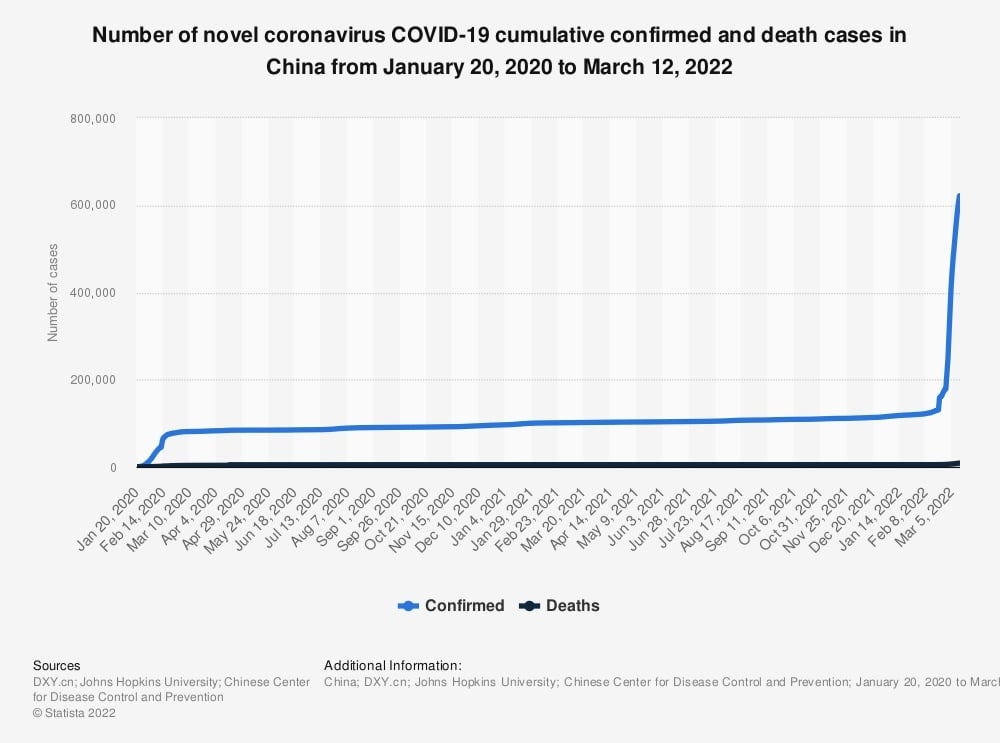What China’s COVID Spike Means for Ecommerce Sellers

Just when the world is slowly starting to open up again, China is mandating more lockdowns as it gets hit by one of its biggest surges in COVID cases. Here’s how it affects ecommerce.
Biggest Crisis Since Wuhan
More than 15,000 people across 28 provinces in China were infected with the virus, caused primarily by the omicron variant. As the cases continue to go up, the Chinese government will face its biggest COVID challenge yet since the outbreak in 2019.
 Source: Statista
Source: Statista
In order to curb the spread of the virus, China turns to its tried and tested zero-COVID strategy, i.e., strict lockdowns and movement restrictions. These measures are implemented because China has fewer intensive care hospital beds compared to other industrialized countries, considering its population.
The province of Jilin has the most number of new cases, but fortunately, 95% of those infected are asymptomatic or are experiencing only mild symptoms.
Lockdowns in Some Manufacturing Cities
In January, CNBC reported that the zero-COVID strategy affects consumers more than manufacturers. This is because factories in China are mostly located in industrial parks, and employees live in dormitories. However, this doesn’t seem to be the case this time.
In Shenzhen, one of China’s most important Special Economic Zones (SEZ), all businesses not involved in essential public services have been suspending production. This affects companies like electronics manufacturer Foxconn, which supplies brands such as Apple and Toyota. They would remain closed until they receive a go signal from the government that they can start operations again.

Dongguan, another city in Guangdong, ordered lockdowns, permitting only necessary activities to be done outside of the home. Workers are also ordered to work from home, but in industrial parks that don’t have any reported cases it’s business as usual, except for stricter control measures. Guangdong is China’s leading province in terms of export in 2021, so lockdowns in this area can affect ecommerce sellers with suppliers there.
Amazon orders are expected to be delayed because of the pause in production, and those of you who are sourcing from China should also expect delays in manufacturing and shipment until the Chinese government eases restrictions.
How the Lockdowns Affect Oil Prices
Millions of consumers around the world had to pay extra for their gas when the war on Ukraine began last month. This price hike did not affect just the fuel we put in our cars, however. Products that depend on oil and petroleum such as plastics are also getting more expensive.
Last February, the United States saw its highest annual inflation hike since 1982, and with everything that’s happening in the world right now, prices are expected to increase further.
However, the lockdowns in China are resulting in a trend towards the opposite direction. China is the largest importer of oil in the world, but because of the lockdowns, we’re seeing a dip in oil prices due to the decrease in demand.
Final Thoughts
China’s zero-COVID policy might have worked in the past, but we have yet to find out if it’s as effective in mitigating the spread of the highly infectious omicron variant. Some experts say no, including Nomura Holdings’ chief China economist, Ting Lu, who said the benefits of the strategy are diminishing while its cost is rising.
However, the Chinese government seems adamant about pushing through with the lockdowns. There are many other countries where you can source your products from, but China remains the largest exporter in the world. So ecommerce sellers who are heavily reliant on Chinese suppliers will have to deal with the consequences of these lockdowns.



